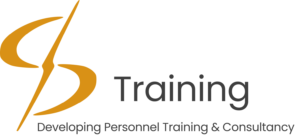
11 Sep 2023
Secrets to Success: What Employers Really Want in 2023 – Uncovered!
The Australian job market in 2023 is a dynamic arena filled with opportunities and challenges. As we have witnessed this year, it’s evident that the landscape has evolved significantly. The aftermath of global events has reshaped the way businesses operate, creating new demands and reshuffling priorities. From bustling cities to regional hubs, the workforce is adapting to these changes.
In this context, understanding what employers truly seek in job seekers becomes paramount. Employers in Australia have always valued a unique blend of skills and qualities. However, this year, the bar has been raised even higher. Knowing what employers expect in terms of skills, attributes, and cultural fit can be the key to unlocking career success.

To navigate the intricacies of the Australian job market in 2023, we’ve uncovered some key secrets to success. These insights are not just for job seekers; they apply to anyone striving for professional growth. So, let’s dive in and see what it takes to succeed in the career paths
1. Emphasizing Adaptability in the Dynamic Job Market
In the ever-changing job market landscape, adaptability is the secret sauce that can turn challenges into opportunities. Employers have long recognized the importance of adaptability in their workforce. The ability to quickly learn new skills, pivot in response to market shifts, and thrive in diverse environments is highly prized.
As industries such as technology, healthcare, and renewable energy continue to expand, those who can adapt to the demands of these emerging sectors are well-positioned for success. Embracing change, being open to new ideas, and staying agile in your career will undoubtedly be assets in the dynamic job market in 2023.
2. Digital Literacy and Tech Skills
In 2023, technology has firmly woven itself into the fabric of Australian industries. From agriculture and manufacturing to finance and healthcare, digital innovation is transforming the way businesses operate. Adopting automation, artificial intelligence, and data analytics is not just a trend; it’s a fundamental shift shaping the landscape of Australian workplaces.
With this digital revolution in full swing, the demand for digital literacy and tech skills has skyrocketed. Employers are actively seeking individuals who can harness the power of technology to drive efficiency and innovation. Whether it’s coding, data analysis, or understanding the intricacies of cloud computing, possessing tech skills has become a must for anyone looking to excel in the job market.
Effective communication is the cornerstone of success in the Australian workplace. Whether you’re collaborating on a project, dealing with clients, or working within a team, the ability to convey your ideas clearly and listen actively is paramount. Australian employers highly value professionals who can articulate their thoughts, provide concise explanations, and foster open dialogue.
Collaboration is not just a buzzword in Australia; it’s a fundamental driver of success. In today’s interconnected world, the capacity to work harmoniously with colleagues from diverse backgrounds and skill sets is crucial. Australian teams thrive on shared goals, collective problem-solving, and mutual respect. Collaborative skills are often seen as a way to harness the group’s collective intelligence and drive innovation.
In recent years, Australian businesses have undergone a significant transformation marked by a shift towards data-driven decision-making. Organizations across various industries recognize data’s power to inform strategies, optimize operations, and enhance customer experiences. This shift reflects a broader global trend and underscores the growing reliance on data as a valuable asset in the Australian job market.
In an evolving job market, data literacy has emerged as a vital skill for career growth. Employers seek individuals who can interpret data and communicate its insights effectively. Whether you’re in marketing, finance, healthcare, or any other sector, the ability to leverage data can set you apart from the competition and open doors to more advanced roles.
Numerous resources and training options are available for those looking to enhance their data analytics skills. Consider enrolling in accredited courses or certifications offered by DP Training, providing you the opportunity to ‘Study Your Way’ to learn the latest skills required in the job market.
In recent years, there has been a notable shift towards recognizing the importance of diversity and inclusion in Australian workplaces. Australian organizations are increasingly embracing diversity as a core value, understanding that a diverse workforce brings a wealth of perspectives, experiences, and talents to the table. This growing emphasis represents a fundamental change in how businesses operate and thrive in the country.
Most employers place a high value on diversity and inclusion for several reasons. Firstly, it fosters innovation and creativity, as diverse teams bring unique viewpoints to problem-solving. Secondly, it enhances employee engagement and retention, as individuals feel valued and respected regardless of their background. Thirdly, it aligns with the principles of social responsibility and ethical leadership, demonstrating a commitment to fairness and equity.
Leadership has a pivotal role in guiding teams through change. Leaders are not just decision-makers but change agents who inspire and navigate their teams through evolving landscapes. Whether it’s adapting to technological shifts, responding to market dynamics, or addressing societal changes, Australian leaders play a crucial role in maintaining stability and fostering resilience.
Adaptive leadership traits are highly valued in Australian organizations. These traits include embracing uncertainty, remaining open to diverse perspectives, and pivoting when necessary. Australian leaders who exhibit these qualities create a culture of trust and innovation. They empower their teams to respond to challenges and drive growth proactively. In an era of rapid change, adaptive leaders are seen as essential catalysts for success.
In Australia, the concept of lifelong learning has become a key component of career development. The traditional idea of education as a one-time event has evolved into a continuous journey. Australians are increasingly recognizing the need to keep their skills and knowledge current throughout their working lives.
Continuous learning is essential to stay relevant and competitive in the Australian job market. Rapid advancements in technology and changing industry landscapes demand that professionals adapt and upskill continually. Employers in Australia highly value individuals who are committed to self-improvement and can bring fresh knowledge and perspectives to their roles.
Conclusion
To succeed in the job market, align your career path with the evolving expectations of Australian employers. They are seeking professionals who possess the right skills and embody the qualities of adaptability, resilience, and a commitment to ongoing development. By staying attuned to these expectations, you position yourself for success in a rapidly changing employment landscape.
DP Training is your partner on this journey for those eager to equip themselves with the skills with In demand courses that are needed to excel in the Australian job market. We offer accredited courses that are specifically designed to meet the demands of the Australian workforce in 2023. Explore our diverse range of programs and take the first step toward a successful career path. Visit our website today to discover how we can help you achieve your professional aspirations. Your future success starts with DP Training.
Frequently Asked Questions
1. How important is diversity and inclusion in the workplace in 2023?

Diversity and inclusion are increasingly important in 2023 as they contribute to innovation, employee engagement, and ethical leadership. Many employers value a diverse and inclusive workplace culture.
2. What are some practical tips for enhancing communication and collaboration skills?
Practical tips for improving these skills include active listening, clear and concise communication, providing constructive feedback, and participating in team-building activities.
3. What are some of the key skills and qualities that employers value in 2023?
Employers in 2023 value skills such as adaptability, digital literacy, soft skills like communication and collaboration, data analytics abilities, and a commitment to continuous learning.
